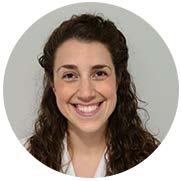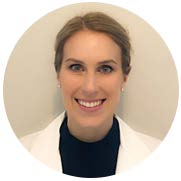March is National Colorectal Cancer Awareness Month! Held each year, this event offers all of the healthcare providers who care for patients with colon and rectum diseases the opportunity to educate all of their communities about these diseases. Providers work to promote awareness of the importance of regular cancer screenings, disease prevention, and available treatment options. Their efforts provide a look at how hard our healthcare providers work to encourage their communities to live healthier lives and prevent these diseases. Talk to your healthcare provider about steps you can take to prevent colon cancer. Wear blue this month for colon cancer awareness!
Schedule your screenings before spring

Eat healthy, exercise regularly, and remember to get your necessary health screenings! Detecting, diagnosing, or monitoring a condition means getting the best treatment possible. Health screenings, especially related to your digestive system, can be crucial for your overall health and wellness. Preventative or diagnostic testing can help you get treatment now so you can enjoy the Spring and Summer holidays carefree. The earlier the screenings, the better the results!
Screenings Are Important

Nearly one in every five people suffers from digestive disorders, and proper diagnosis and treatment can improve quality of life. Ideally, conditions are treated best during the early stages. Health screenings are the safest and most effective way to ensure you receive the best treatment for your condition. Schedule the health screenings your doctor recommends to treat your condition sooner rather than later for the best results possible.
Whether you’ve been putting off your colonoscopy or other screenings, make sure to schedule your procedure soon before appointments fill up and become less and less available before the good weather arrives.
Office Updates & Notices
Welcome to our new team members!

Stephanie graduated from the University of Delaware with honors in 2011 with a degree in Biological Sciences. She earned her Master’s degree in Physician Assistant Studies with honors in 2015 from the Massachusetts College of Pharmacy and Health Sciences.

Alyssa graduated from Saint Joseph’s College of Maine with a degree in Biology in 2011. She earned her Master’s degree in Physician Assistant Studies in 2015 from Massachusetts College of Pharmacy and the Health Sciences. Alyssa is certified by the National Commission on Certification of Physician Assistants (NCCPA).
Patient Education: Colonoscopy

An important part of the digestive tract, the colon helps take in food, absorb its nutrients, and dispose of the waste. Those who have a history of colon related diseases or have a family history of colon cancer are highly encouraged to talk to their doctors about preventative colonoscopies.
Colonoscopies are simple and non-invasive procedures that allow a gastroenterologist to examine the health of the colon. It is an effective procedure for diagnosing or further evaluating conditions such as colon polyps, diverticulosis, inflammatory bowel disease, and abdominal pain or obstruction. The procedure can also be performed to screen for colon cancer.
Colonoscopies have low risk of complications and are performed by doctors highly trained and experienced in the procedure. The procedure is relatively short and usually takes between 15 minutes to an hour, not including preparation or recovery. To prepare for a colonoscopy, patients are required to avoid solid food 1 – 3 days before the procedure and take laxatives as prescribed. Ingesting clear liquids is allowed up to a certain time. Patients should let their doctor know what medications and supplements they are taking to make sure none of them could interfere with the procedure. For the procedure, patients are comfortably medicated and sedated while a doctor uses a lighted tube to view the inside of the colon to check for any abnormalities and to take tissue biopsies if needed. Patients are encouraged not to operate a vehicle or machinery the rest of the day. At a follow-up appointment, a physician will discuss the results and talk to the patient about any treatment options, if necessary.

